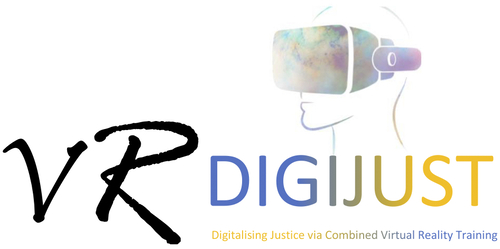VR-DigiJust contributes to the effective and coherent application of specific EU cooperation instruments at regional level through a decentralized cross-border and cross-professional training strategy in the framework of the Council Conclusions 6926/21. At the center of the VR-DigiJust is the impact of the new technologies firstly on the work of regional prosecutor offices and their staff, judges, lawyers and bailiffs, when they are confronted with large cascade investigations, such as ‘Enchrochat’.
This project is funded by the European Union
Legal Notice: The content of this website represents the views of the authors and is their sole responsibility. The European Commission does not accept any responsibility for use that may be made of the information it contains.


In the VR-DigiJUST project the IPoS, together with the partners, will develop and establish relevant elements for the successful management and coordination of the project, such as scientific and evaluation committees, management and quality control methodologies, legal and ethical management protocols as well as gender-based protocols for the impact assessment. The consortium will establish a regional practitioner network including judicial trainers, VR training designers, and regional judicial schools for judges, prosecutors, lawyers, court experts from across the EU. The Network will be engaged in the project research, piloting and training activities. The partners will design a multidimensional training and research methodology through Community of Practices (CoPs) for interdisciplinary training within the judicial sector using blended VR and online training. Three regional focus groups will engage judicial trainers, lawyers, judges, prosecutors and forensic experts to facilitate open dialogue on experiences in applying European legal instruments from an anagogic perspective. The outcome of the empirical research will be presented in several e-Capsule Reports and used as training material. The partners will design the ‘Network of Regional Judicial Training Centres’. Three technical platforms will be designed and implemented for the network. The consortium will design VR-DigiJust training contents, curricula and certificates. Three Train-the-Trainer courses will be implemented for trainers and regional judiciary schools and justice training centers at local level. A training recruitment campaign will exploit the partners’ existing network, maximizing the dissemination channels. A Cascade Peer Trainingaims at delivering training for 300 Judges, prosecutors, lawyers and court experts, in the partner countries, inviting experts from all EU Member States. The consrtium will draft and publish Journal Articles. A targeted dissemination focuses on communicating transferable results of practical relevance to relevant actors in the justice system.
The overall long-term goal of VR-DigiJust is to contribute to the effective and coherent application of specific EU cooperation tools at regional level. This will be achieved through intermediate steps that will have effects in the short and medium term.
Specifically, these will be:









To be always updated about IPoS.
Institute of Police and Security Research – IPoS
Doventorscontrescarpe 172 C
28195 Bremen
Germany